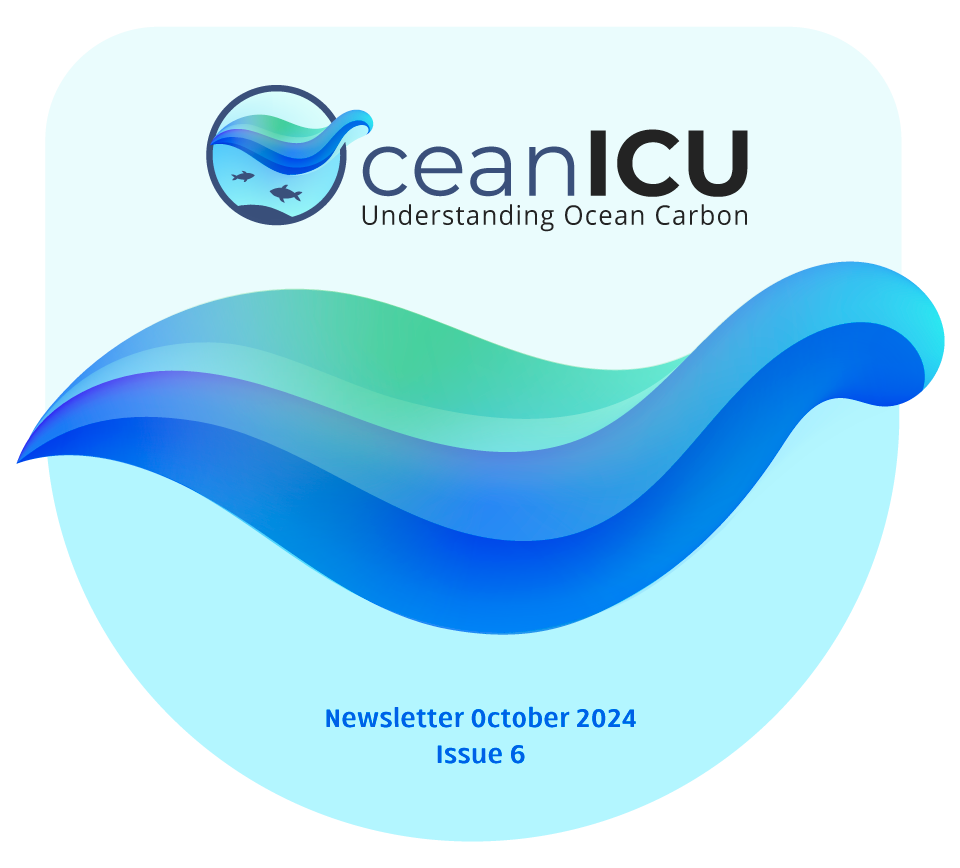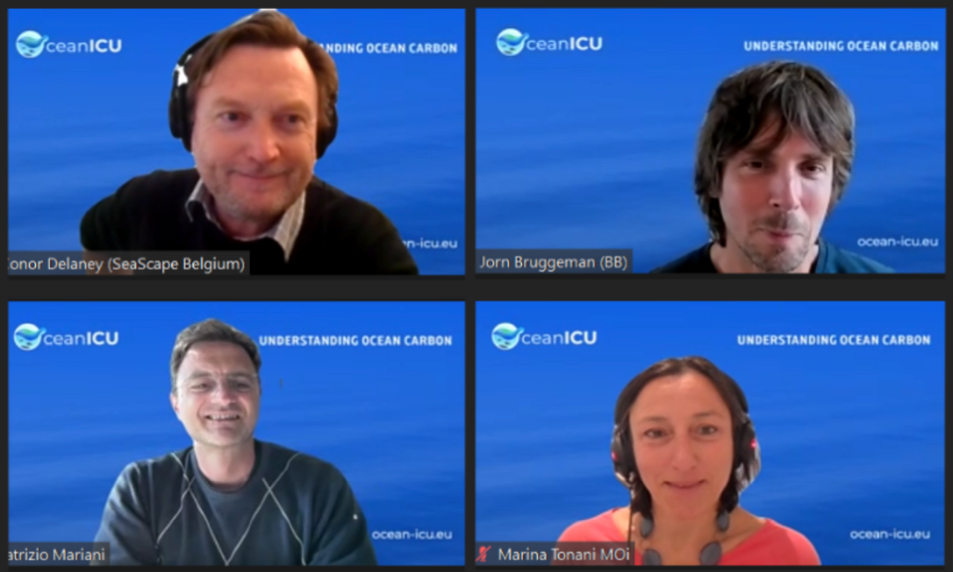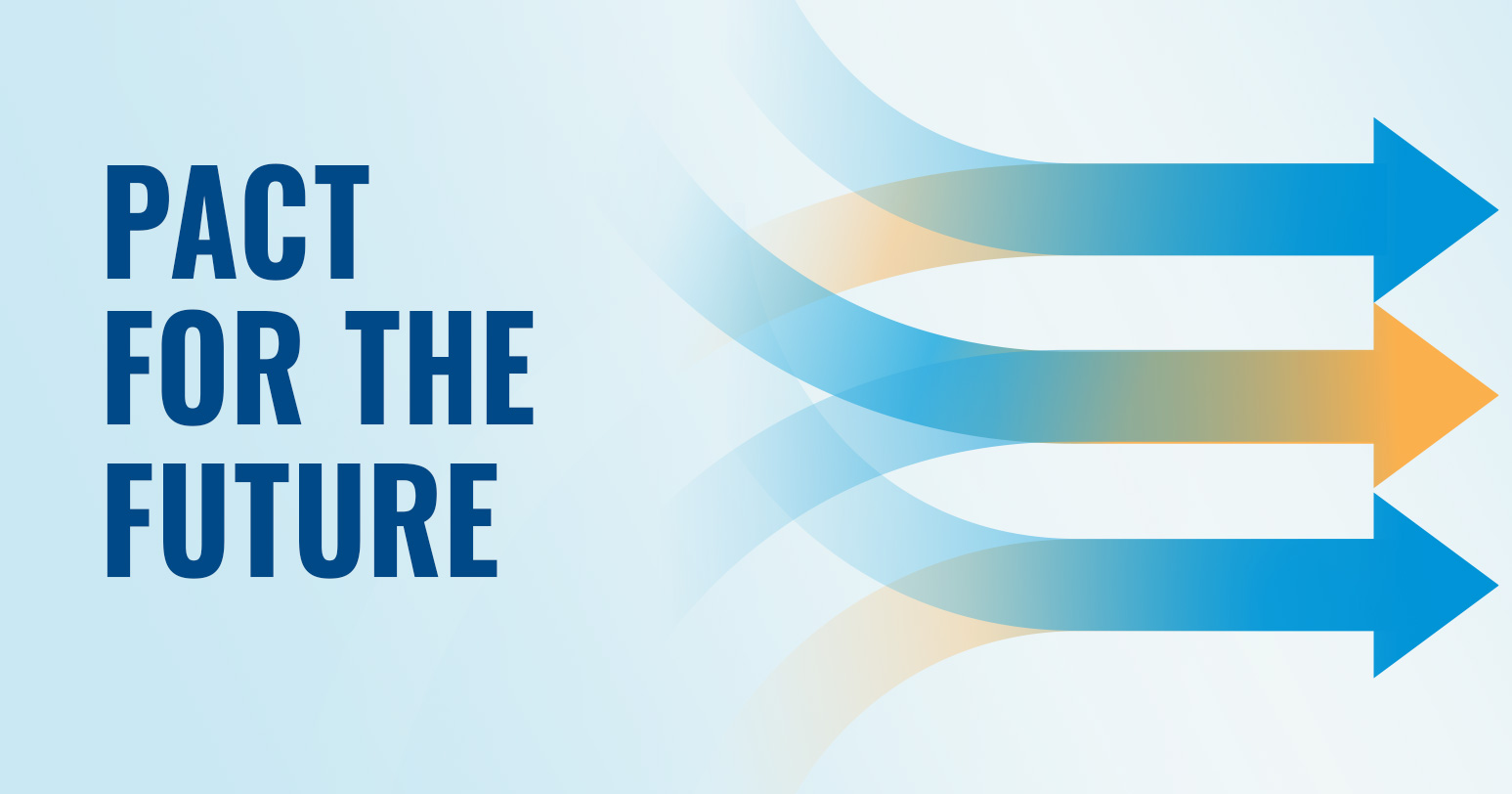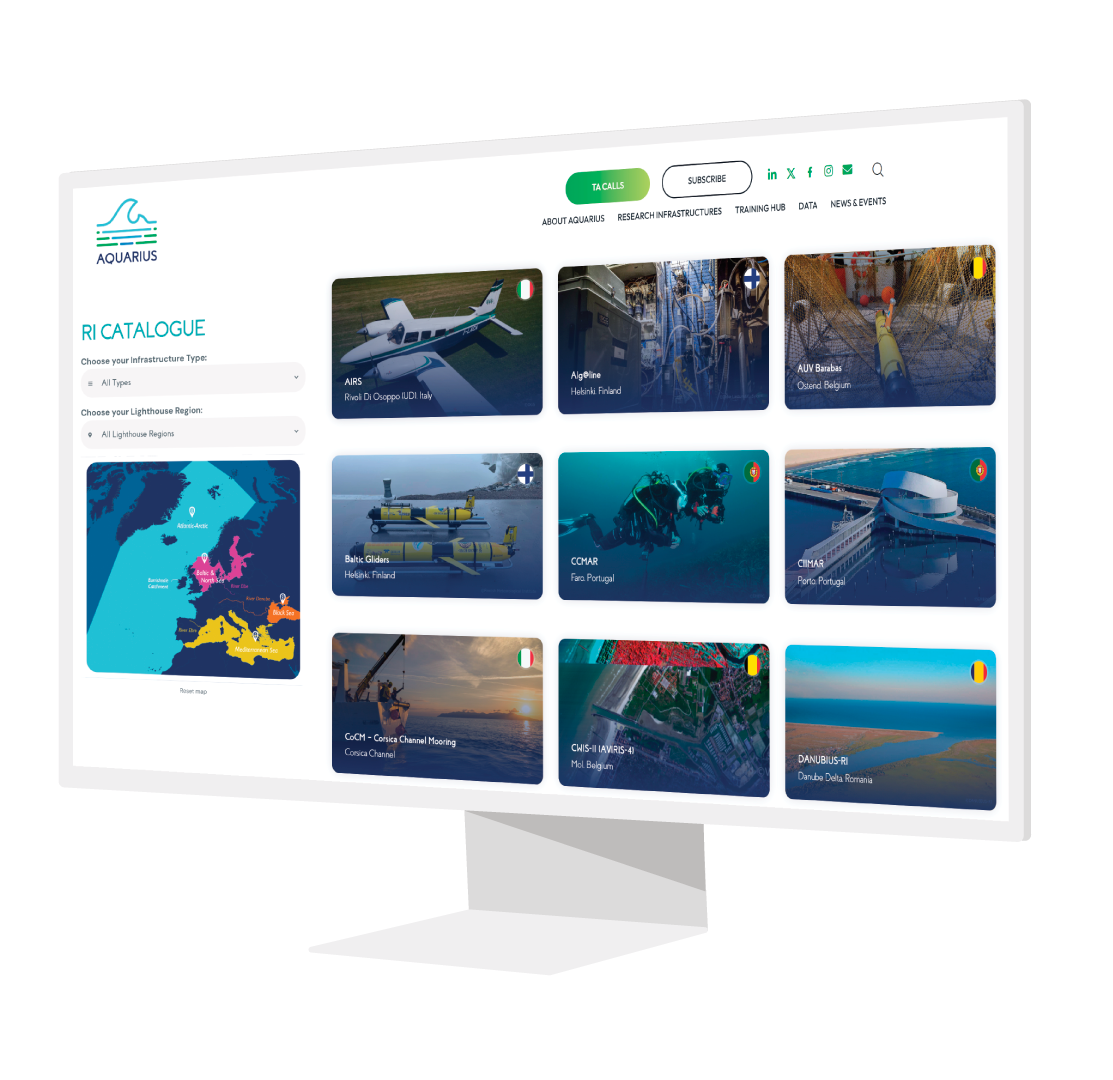
In this edition:
OceanICU is a five-year project that seeks to gain a new understanding of the biological carbon pump and its processes to provide fundamental knowledge and tools to help policy makers, regulators and Ocean industry—fishing and mining, along with the wider blue economy—manage and understand the impact of their actions on Ocean carbon. This will ultimately lead to a better approach for addressing climate change in alignment with the EU Green Deal to reduce the net emissions of greenhouse gases to Zero by 2050.
A Note from OceanICU Project Manager Dagmara Rusiecka

Hello and thank you for your continued interest in the OceanICU project.
I’m very pleased to share that we are now heading towards finalising the first successfully conducted review process, marking a crucial achievement of the OceanICU project! This was no small feat, involving over 100 contributors from 29 institutes and organisations across 14 countries. The preparation for this process kicked off at the Annual Science Meeting in March, and although it’s still ongoing, the acceptance of the report represents a significant milestone in our progress.
This has been a truly collaborative effort, and it’s rewarding to see how the pieces have come together. The contributions from all scientists involved have been invaluable, providing diverse expertise and insights. The Principal Investigators (PIs) played a significant role in synthesising these contributions, ensuring that all inputs were effectively compiled. The Work Package leaders were instrumental in coordinating efforts within their teams and guiding the alignment with the project’s objectives. Additionally, the feedback from our two external reviewers offered critical insights and constructive comments that greatly enhanced our discussions and the overall review process.
As we move forward, we will continue with the planned scientific objectives for the second reporting period. Additionally, this autumn, we are focusing on aligning our key performance indicators (KPIs), key exploitable results (KERs), impacts, and outcomes, and connecting them with relevant stakeholders. Also, our Work Package 6 team will lead a workshop to align Biological Carbon Pump metrics and facilitate the intercomparison of key processes across the project. In Work Package 8, we will develop bespoke scenarios for mining and fishing, linking these to shared socioeconomic pathways (SSPs) to better inform our analyses. These activities will be significant as we integrate the review outcomes and continue refining the project’s direction.
Once again, thank you to everyone involved for your hard work and dedication. And to our newsletter subscribers for your interest. I look forward to the many achievements that lie ahead!
Dagmara Rusiecka
OceanICU Project Manager
NORCE
Bergen, Norway

The OceanICU Decision Support Tools Webinar was a Technical Masterclass!

The latest webinar in the OceanICU series focussed on activities in Work Package 7 where the ultimate goal is to develop decision support tools (DSTs) suitable for predicting the impact of climate change and resource management decisions in relation to the ocean carbon cycle. This online event provided an in depth look at plans to use Machine Learning with Big Data, and discussed how EMODnet and Copernicus Marine, via the EDITO platform, are helping OceanICU to use Big Data. The highlight was a live demonstration of a prototype DST working on the EDITO platform.
Thanks to our expert panellists Conor Delaney (SSBE), Jorn Bruggeman (BB) and Patrizio Mariani (DTU) and to our special guest Marina Tonani (Mercator Ocean) for the insightful look into how they are leading new innovative pathways toward providing crucial data needed in support of the EU Mission “Restore our Ocean and Waters by 2030.
A video recording of the live event and a pdf of the presentation are available here.
Deep Sea Mining Industry Stakeholder Workshop
As part of OceanICU’s important mission to work directly with industry stakeholders to assess their understanding and needs in relation to ocean carbon, Work Package 8 held the first workshop with Deep Sea Mining industry stakeholders over the summer. It was attended by 16 participants comprising representatives of the deep sea mining and associated industries, advisory bodies, management and responsible authorities, as well as NGOs and researchers. The OceanICU team provided an overview of the project and shared our current understanding of ocean carbon and deep sea mining. A dynamic Q&A session followed and all participants worked together to co-produce a mental model of the deep sea mining-carbon system, including identifying the elements that should be included in such a system, and the types of links and interactions between those elements. Read More Here!

International Youth Day: Discussing Ocean Carbon with Dr. Jack Laverick
To celebrate the UN’s International Youth Day, OceanICU had a friendly chat about the importance of Ocean Literacy with Dr. Jack Laverick, a Chancellor’s Fellow in Statistics and Data Science at the University of Strathclyde in Scotland and a founding member of the Youth4Ocean Forum, one of the three components of the EU4Ocean Coalition for Ocean Literacy, launched in 2020. Read the Interview here.
Scientific Papers
OceanICU has been cited in four recently published papers. Check out the new additions below and remember that a list of all papers with links to their official hosting sites can be found on the OceanICU website.
Antarctic krill sequester similar amounts of carbon to key coastal blue carbon habitats
E.L. Cavan…N. MacKay, A.Visser, et al
The carbon sequestration potential of open-ocean pelagic ecosystems is vastly under-reported compared to coastal vegetation ‘blue carbon’ systems. This paper shows that just a single pelagic harvested species, Antarctic krill, sequesters a similar amount of carbon through its sinking faecal pellets as marshes, mangroves and seagrass. www.nature.com/articles/s41467-024-52135-6
Impacts of Vertical Migrants on Biogeochemistry in an Earth System
Getzlaff, J., & Kriest, I.
Despite the fact that vertical migrants play an active role in the ocean’s biochemical cycles, they are not generally included in numerical models. This study introduces a fully coupled Earth system model representing vertical migration, resolving the key components of the mesopelagic ecosystem.
agupubs.onlinelibrary.wiley.com/doi/10.1029/2023GB007842
Optimal phenology of life history events in Calanus finmarchicus: exit from diapause in relation to interannual variation in spring bloom timing and
T. R. Anderson et al.
This study examines how the timing of diapause exit in Calanus finmarchicus impacts ocean carbon sequestration via the Seasonal Lipid Pump (SLP).
academic.oup.com/plankt/article/46/4/439/7689317
In the Wake of Deeper Convection: Nonsteady State Anthropogenic Carbon in the Greenland Sea
Are Olsen et al.
The changes in dissolved inorganic carbon (DIC) in the Greenland Sea from 2002 to 2016, during a period of increasing convection depths, are discussed in this paper.
agupubs.onlinelibrary.wiley.com/doi/10.1029/2023JC02046

The Royal Society Meeting
The Royal Society hosts a programme of scientific meetings throughout each year organised by leaders in a particular area of science, using their expertise to ensure the key topics are covered. OceanICU has had a proposal accepted for this prestigious series and will be organising a session to include presentations from several OceanICU consortium members. The audience comprises a variety of interested stakeholders and fellow scientists at various stages of their career, so we are expecting invigorating discussions, and maybe the answer to the session’s question: Will biodiversity loss impact the ocean’s role in regulating climate and delivering sustainable marine resources?
The event will take place in London, 1st-2nd December 2025. Please stay tuned for more information
The UN Pact for the Future

UN world leaders have adopted the Pact for the Future – featuring measures to tackle major international challenges. These measures include ambitious actions to improve the health, sustainable use and resilience of the ocean and its ecosystems, as well as addressing the adverse impacts of climate change and sea level rise, and enhancing international cooperation and engagement at the global, regional, subregional and bilateral levels to combat all threats to maritime security and safety. Read More Here!
AQUARIUS Transnational Calls
First Call Open: 11 November 2024 – 20 January 2025
Opportunities for researchers to access a diverse set of integrated research infrastructures are being offered through the Horizon Europe funded project AQUARIUS. Check out the impressive catalogue of 57 participating research infrastructures including vessels, aircraft, mobile and fixed freshwater facilities, specialised laboratories, drones and more… The second call will open 2 September 2025 – 28 October 2025. Visit the website for more information.


Science was in the air this past summer as our consortium colleagues shared the OceanICU story and project research at a variety of events and conferences around Europe.
AMEMR
The AMEMR (Advances in Marine Ecosystem Modelling Research) Conference facilitated interdisciplinary discussions among stakeholders focused on advancing various marine ecosystem models: Fiona Culhane (MI) presented on Co-producing Knowledge with Ocean Industry Stakeholders to Understand the Impact of Activities on Ocean Carbon; Paula Silvar (MI) discussed Potential Continental Shelf Carbon Sequestration by a Harvested Fish Species; and Ken H. Anderson (DTU) also presented OceanICU work at this important conference. The event took place 8-11 of July in Plymouth, UK.
CLIVAR-FIO Summer School
Jerry Tjiputra (NORCE) discussed OceanICU work with international students at the CLIVAR-FIO Summer School on Biogeochemical Processes in Earth System Models when he gave lectures on ocean biogeochemistry representations in ESMs and constraining projection uncertainties. Jerry’s lectures took place, 15-20 of July to an audience in Qingdao, China.
Challenger Society Conference
Pete Brown (NOC) attended the Scottish Association for Marine Science’s Challenger Society Conference, one of the UK’s largest marine science events, held in Oban, Scotland 2-6 September.
Blue Economy Summit
Fabio Berzaghi (WMU) attended the Blue Economy Summit in Milan, Italy where he engaged with stakeholders interested in ocean conservation and sustainability. 4-June.
Sustainability Day
Christian Riisager-Simonsen (DTU) met with high school students at the European School of Copenhagen on Sustainability Day and led a workshop on marine sustainability challenges, 30-Sep.

Ocean Best Practices System Workshop (OBPS WSVIII)
Virtual: October 14-18, 2024.
This workshop will facilitate the cross-cutting primary role of best practices in operational oceanography by promoting dialogues across science and technology. Jamie Shutler (University of Exeter) will be presenting OceanICU work. For more information visit the site.
COP29
Virtual: 11- 22nd November 2024
OceanICU will participate in the Virtual Ocean Pavilion again this year, focusing on impacts of the green transition and food security on the ocean’s role in climate. Watch our social media and website for updates, coming soon. If you missed last year’s insightful session, you can find the video recording and presentation here.
OceanICU Annual Meeting
Sopot, May 2025
Our partner IOPAN will host the consortium for the Third Annual Meeting and General Assembly where partners will physically meet for the first time since the project Kickoff.
FABM Workshop
Eupen, Belgium: 16-20th June 2025
The workshop will cover numerous recent developments in and around FABM, including new tools and models being developed within the European projects OceanICU and NECCTON. For more information click here.
Stay updated with the latest news and information about events
Follow us on social media
And remember, if you’d like to join our mission to improve carbon understanding for a healthy and resilient Ocean and sustainable blue economy, please fill out the Stakeholder Sign-Up Sheet.
